Poker is a game that is constantly evolving and changing year in and year out.
The strategies employed by today’s players are very different than what players were using even just a few years ago.
However, there are timeless Texas Hold'em tips which will always serve to add some BBs to your winrate.
I have done a lot of research (and used my own experience) to put together a list of over 50 of the best tips to help you take your game to a new.
If you find these poker tips useful, please hit the share button!
Table Of Contents
- #1 Play Poker At The Right Times
- #2 Religiously Take Notes On Your Opponent
- #3 Slowplay For The Right Reasons
- #4 Join A Poker Training Website
- #5 Learn To Spot The Fish
- #6 Get A Poker HUD
- #7 Learn To MultiTable
- #8 Learn How To Play Flush Draws
- #9 Don’t Bluff The Calling Stations
- #10 Play At The Right Stakes
- #11 Poker Is A Long-term Game
- #12 Don’t Call When You Know You Are Beat
- #13 Stop Limping Pre-flop
- #14 Put Your Opponent On A Range Of Hands
- #15 Exploit The Limpers
- #16 Position, Position, Position
- #17 Stop Overpaying for Draws
- #18 Don’t Overestimate The Value Of Suited Hands
- #19 Use Effective Bankroll Management Strategy
- #20 Know When To Quit
- #21 Be Aggressive
- #22 Make The All-in Power Play
- #23 Always Consider Your “Effective Stack” Size
- #24 Learn To Categorize Your Hands Postflop
- #25 Use The Bubble To Your Advantage In Tournaments
- #26 Don’t Show Your Hand
- #27 Watch The Other Players Before You Look At Your Hole Cards
- #28 Look For Disinterested Players
- #29 Find Someone Better Than You To Mentor You
- #30 Remove All Distractions While Playing Poker Online
- #31 Don’t Play Hands To Suppress Boredom
- #32 When Card Dead Still Try To Figure Out Your Opponent's Hole Cards
- #33 Don’t Allow Other Players To Distract You In Chat
- #34 Take Advantage Of Online Bonus Offers
- #35 Search For Players Online
- #36 Use A Four Colour Deck Online
- #37 Buy-In For The Maximum
- #38 Improve Your Focus
- #39 Learn Other Game Variations
- #40 Learn How To Play In 3bet pots
- #41 Take Scheduled Breaks
- #42 Always Be Aware Of The Best Hand Possible (The Nuts)
- #43 Don’t Play When Tired or Emotionally Drained
- #44 Always Have A Plan
- #45 Work On Your Mental Game
- #46 Take Your Table Image Into Account
- #47 Stop Calling 3bets Out of Position (OOP) As Often
- #48 Join A Study Group
- #49 Listen To Music While Playing
- #50 Learn The Important (yet simple) Poker Math
- #51 Beware Of The Flush
#1 Play Poker At The Right Times
Okay, I must admit, this one might seem obvious. But there is a reason I put this as number 1 ranked tip:
- It helped me increase my winrate by 50% from the year previous to implementing this.
- It's very, very simple yet not many people do it
So what is the poker tip? Simply play more when the games are good (e.g. the weekend) and less when the games are bad (e.g. mid-week).
You might think that's a dumb tip – and that it's completely obvious. However, how often would you consider how good the games are before playing?
Most players will just jump online on a Wednesday night (when all the fish are asleep) because they want to play – not because they are thinking of their bottom line and how profitable playing actually will be.
I did some analysis and came to the conclusion that I should completely ban myself from playing poker on Wednesday and Thursday.
Why? Because I would have been better off sitting on the couch and watching Netflix rather than grinding.
The analysis also suggested that I should play more at the weekends as these were my most profitable days (which seems obvious).
The result: over 50% increase in my winrate from this small change.
Find out more about this tip and the analysis I did right here: https://howtoplaypokerinfo.com/one-tip/
#2 Religiously Take Notes On Your Opponent
Poker is a war of information. The more information you have on your opponent, the more likely you will be to come out on top.
Start paying attention to your opponent's tendencies and make a note of anything you can use against him or her in the future.
It might be his demeanour when bluffing, or how he acts confidently when holding a monster hand.
Even if you don't take a notepad to live games, make sure you take a ‘mental note' of anything you may be able to use in the future or alternatively use the notes feature on your phone (when the hand is finished, of course).
Here is an example of notes that I took on one opponent who wasn’t very good that I played with a lot at 50-100nl zoom on PokerStars (explanations in bold):
– floats flop with QT 3bet 8xxs w/o BDFD – He called a bet with QT on an 8 high board without any backdoor draws
– C3bet Ipw AK, call cbet K44 raised turn barrel Q – Called a 3bet in position with AK, called continuation bet K44 and raised the turn
– CC OOP A3o, XminR A83r – Cold called out of position with A3o and check min-raised A83 rainbow board
I write in a shorthand style that I can understand to make it much quicker to write notes.
For more info on this Texas Hold'em Tip, see how Jonathan Little takes notes on the poker table.
#3 Slowplay For The Right Reasons
There is a time and a place for slowplaying in poker, but not, for example, when you have AA preflop against a loose aggressive opponent.
Slowplaying weak hands postflop is also a common newbie error. On the contrary, if you have a set on a dry board, raising your opponents bet can be a big mistake.
Discover the slowplaying dos and don'ts over at Pokernews.com.
SunTzuPoker.com looks at a good slowplaying example and interestingly, how slow playing is the opposite of bluffing.
#4 Join A Poker Training Website
A very simple poker tip is to find a poker training site for the game type you enjoy most.
One of my favourite pieces of training is the Upswing Poker Lab which is run by the famous poker pro-Doug Polk – this course starts at the very basics of poker, and will teach you the fundamentals of Cash games MTTs and live poker turning you into a well-rounded player that can hold your own in any texas holdem game.
I break down all the upswing poker lab has to offer in my review right here.
Training sites aren't free, but they are almost always well worth the investment: would you rather spend 1-year learning skills on your own that you can pick up in a few weeks from a series of lessons or course?
We ranked the best poker training sites on the market in our post here, so if learning poker quickly piques your interest, make sure you check it to find a training site suited to you.
#5 Learn To Spot The Fish
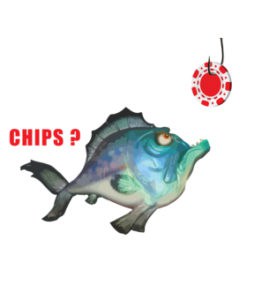
Thanks to www.bestpokerrooms.com
Playing against bad players is what winning poker is all about. We already mentioned that you want to play when the games are good, but when at the table you want to play against those who are bad.
The more quickly you can spot the fish, the quicker you will be able to adjust and take home their stack.
Fish effectively have a clock on their stack; they will eventually lose it – you want to be the ultimate winner of their chips, so act quickly.
Look for telltale signs of a fish: limping, calling down with weak hands, overbetting or underbetting in the wrong spots. PokerRockets.com discussed this in more detail in an excellent article here.
#6 Get A Poker HUD
A HUD or Heads Up Display is a tool online poker players use to display stats on their opponent.
Poker tracking software such as DriveHUD or Holdem Manager gathers the stats and shows the HUD. If you are playing online and aren't using a HUD, you are at a huge disadvantage, as the majority of other players have stats and are tracking you.
One option is Holdem Manager 2 as I have used it for years with no issues (it has a free 30-day trial) but another great option is DriveHUD for which you can find more information here.
HEM or is very useful for tracking your online results even if you don't want to use a HUD. For info on setting up a HUD see BlackRain's post (it isn't that complicated, I promise! ).
#7 Learn To MultiTable
MultiTabling is simply the act of playing more than one table when playing online poker.
Playing more than one table can increase your hourly from single digits all the way up to $100s of dollars per hour if you are skilled enough.
However, be careful – playing too many tables can actually hurt your winrate and turn you into a breakeven rakeback grinder!
And nobody wants to be a rakeback grinder.
Find out how to MultiTable and how many tables to play in my blog post.
#8 Learn How To Play Flush Draws
Flush draws are a pretty difficult hand to play and most players don't play them correctly.
Flush draw strategy waayy detailed for this post so I will just direct you to Upswings free 20 rules for playing flush draws which will tell you everything you need to know.
#9 Don’t Bluff The Calling Stations
Okay okay, you might have heard this one before – don't bluff the fish. But you still do it, don't you?
Probably, so I am reiterating this ancient tip!
Calling stations are people who will not fold no matter how big you bet or how poor their holding is… and they are a very common player type.
It can be frustrating to play against them, but there is a simple trick to beating them: be patient, wait for a big hand, and then, value bet them to death.
#10 Play At The Right Stakes
When will the 5th best poker player in the world be out of his depth?
When playing poker with the 4 best poker players of course!
This goes back to our very first tip of making sure that you play at the right times and right places. So make sure you play at stakes that are right for your skill level and your bankroll.
#11 Poker Is A Long-term Game
Do not become overly concerned over short-term results. It takes a substantial amount of time or hands played for a player to be able to determine if a player is a winner.
Online, it can take upwards of a 100k hands to know you are a winner, that's 2-3 months for even a heavy grinder.
Live poker will take even longer!
So forget about the short-term results and concentrate on making good decisions.
#12 Don’t Call When You Know You Are Beat
Seems simple, right?
But this is very common with experienced and beginning players to mutter the words ‘I know you have me beat’ but continue to call anyway.
If “I know he has me beat” crosses your mind, force yourself to make the folds. It's necessary to be disciplined if you want to become a profitable player.
Pokerprofessor.com covers how a big laydown is often worth more than a big win in this article.
#13 Stop Limping Pre-flop
Limping preflop is simply calling the big blind when first to act instead of raising or folding.
The majority of winning players do not include limping in their preflop poker strategy; unsurprisingly the majority of losing players think limping is the go-to strategy.
Limping isn’t an effective approach as the small, ‘insignificant' losses add up quickly.
See our Texas Holdem strategy guide for more information on limping.
#14 Put Your Opponent On A Range Of Hands
Start considering what your opponent may be holding, and not just what you have in your hand.
Practising ‘ranging' your opponent will significantly improve your winrate and is one of the most important skills a player can learn.
Find out more about putting your opponent on a range here.
Famous poker pro and coach James ‘Splitsuit' Sweeney also has a course on putting your opponent on a range called the hand reading lab. However, it's not cheap at $497 but is a great investment to make for your poker career if you are truly dedicated to improving this important part of your game.
#15 Exploit The Limpers
Following on from the previous poker tip on not liming, you should be trying to play as many pots as possible with people who limp!
Limping indicates a novice player, and thus you can take massive advantage of them. Players who limp frequently play ‘fit or fold’ meaning they only continue with their hand if they hit and hence they are a very easy target.
There is a well-written article over at flopturnriver.com which discussed this poker strategy in more detail. PokerVIP.com also has an excellent guide for isolating raising limpers which can be found here.
Focusing on limpers is one of the best ways to increase your winrate and easily one of my favourite tips for Texas Holdem.
#16 Position, Position, Position
No not “location, location, location!”
Just as location is the most important idea in real estate, position is the most important concept in poker.
Experienced players base their starting hand strategy around the effect of position.
That means playing fewer hands when you are likely to be out of position (e.g under the gun, middle position) and more hands when you are guaranteed position (on the button).
Make sure you read up and understand position then check out upswing's free preflop ranges which tell you exactly what hands to play.
#17 Stop Overpaying for Draws
Draws are a difficult hand to play for beginners because it is unclear whether the hand is strong or weak. But beginners often overestimate the strength of their draw (i.e. likelihood of completing the draw) and as a result, pay too much to see the turn and river.
Make sure you know how to calculate each of these: Pot Odds, Equity And Expected Value to prevent overpaying for your draws.
#18 Don’t Overestimate The Value Of Suited Hands
Related to the last tip, new players see suited hands and automatically think suited means strong; as a result, they end up overplaying their hands. Suitedness only adds a small amount to the strength of a hand. We are talking 2-3% improvement in equity.
The evaluation of a hands strength is, for the most part, based on the ranks of the two cards.
See this article by ESPN.com for why suited cards aren't as valuable as you think.
#19 Use Effective Bankroll Management Strategy
Bankroll management is the cornerstone of all professional poker player’s strategy.
Your bankroll management strategy defines what stakes you should play and when you should move up and down in stakes. Take some time to determine a bankroll management strategy which fits your situation.
For more information see Bankroll Management And Why You Should Use It and Calculating Tournament Bankroll Requirements.
#20 Know When To Quit
A common word of advice is to quit when ahead.
Quitting while ahead is poor advice where poker is concerned unless you also consider other factors.
You should only stop playing once you are no longer playing profitably or the quality of your game deteriorates.
The skill in knowing when to quit is being able to identify when you are not playing in a favourable situation.
For example, you might wrap up for the night if:
- The biggest fish on your table leaves
- A really strong player sits down (particularly if he is to your left)
- You have been playing for 10 hours straight
- You no longer feel up to playing or you are on tilt
A good reason to leave is not that you doubled your stack in 15 minutes.
PartTimePoker delved deeper into the skill of knowing when to finish your session here – it's well worth a read.
#21 Be Aggressive
The main component of a winning poker strategy is aggression.
When you take aggressive actions (bet and raise), there are two ways to win the pot – by your opponent folding or by you showing the best hand. When you only check and call, you must have the best hand to win.
Make use of controlled aggression to win the pot more frequently. See Pokerology for some betting sizing tips.
#22 Make The All-in Power Play
The all-in move is a powerful move with is synonymous with no limit poker.
Moving all-in derives its strength from the fact that you only give your opponent two options: to call or to fold.
Your opponent can no longer make you fold your hand. However, the all-in move risks your whole stack so use it with care.
This tactic is particularity useful in a tournament when you can 3bet shove against opponents who raise too often. They will have to fold very often unless they want to call with an extremely wide range of hands.
There is a lot to consider when going all-in so check out this all-in article by yourhandsucks.com for some of the things you should think about.
#23 Always Consider Your “Effective Stack” Size
Your stacks size is the amount of money you have on the table.
One aspect that most beginners fail to take into account is the stack size of their opponent.
If your opponent has a smaller stack size than you, they reduce the amount of money in play and your effective stack size.
Gripsed.com goes into more detail on effective stack sizes here and PokerNerve discusses stack size and tournament play in their tournament tips article.
#24 Learn To Categorize Your Hands Postflop
When playing preflop, defining ranges is usually pretty simple. You ask yourself is this hand a profitable raise?
If you think it is profitable, you raise. If not, you fold.
However, it gets a little more complicated when playing post-flop as you need lots of ranges:
- value betting range
- a bluffing range
- a check back range
- or if out of position, a check-raising range
Managing these ranges and figuring out which hands go into each category is quite challenging, and is a skill you need to practice.
You should work on this by thinking about which hands should go into the following categories on each street:
- Value bets – top pair top kicker, sets, 2 pair, monster draws
- Weak made hands – 2nd & 3rd pair
- Semi-bluffs: flush draws, straight draws
- Air – nothing at all hands with very little chance of winning).
You can then bet your value bets and semi-bluffs while checking back your weak made hands and air. This leaves with you with a roughly balanced range which makes you harder to play against.
Upswing Poker developed a 4 category system in their Postflop Game Plan which costs $7 (down from $19). It contains just under an hour worth of video in 11 lessons which walk you step by step through the process for categorizing your hand range.
If you would like to learn more about the postflop game plan, go to Upswing here.
#25 Use The Bubble To Your Advantage In Tournaments

The last person to go out before everyone gets into the money is said to have busted on the ‘bubble'. Nobody wants to go home empty-handed, particularly at this stage of a long tourney.
Use this to your advantage and pressure opponents with big bets and tactically timed, steals, re-steals, and all-ins. They are much more likely to fold to pressure when compared to earlier in the tournament.
See this article over at upswingpoker.com for more information.
Here are some tips geared towards the live game:
#26 Don’t Show Your Hand
At the end of the hand when your opponent has folded to your bet, and he asks to see your hole cards, don’t show, just muck. Showing your hand when you don’t need to is giving away information.
Poker is essentially a war on information so don’t give any away unless the rules dictate that you must show your cards.
#27 Watch The Other Players Before You Look At Your Hole Cards
When playing live you will see your fellow poker players all eagerly waiting for the cards as the dealer slides them across the table.
Instead of looking at your cards, pay attention to the reaction of the players as they first look at their hole cards.
You can pick up on subtle poker tells which will give away the strength of their hands. Do they suddenly seem very excited? Or how about disinterested?
This trick is especially important for people who are to act after you. See this (old but still gold) video with Mike Caro for some more poker tells:
#28 Look For Disinterested Players
Players who are not interested in the pot often give away tell-tale signs.
For example, do they have a placeholder that they only put on their cards when they are planning to take their hand further? Do they have their hole cards in their hand ready to muck as soon as you bet or raise?
Keep an eye out for these subtle signs and adjust accordingly.
#29 Find Someone Better Than You To Mentor You
One of the quickest ways to learn any subject is to find someone wiser than you to impart their wisdom upon you. The same applies to poker.
Socialise on the tables, poker forums, and study groups, and find someone who knows more than you and absorb everything they tell you.
If you can have some real-life friends who you can play and chat with, even better!
I would also highly recommend ultimate poker coaching or Tadas Peckaitis poker coaching site if you want to accelerate your poker learning. Note: make sure you read up on choosing a poker coach first.
Here are some more geared towards the online game:
#30 Remove All Distractions While Playing Poker Online
When playing online or live, get away from distractions such as Facebook, Twitter Instagram, etc. and concentrate on playing poker.
If you are bored, you aren’t paying close enough attention to the hands around you.
Look to get a website blocker if you need to (see blocksite for chrome).
#31 Don’t Play Hands To Suppress Boredom
It can be frustrating when you consistently dealt weak hands; especially live as you are dealt so few hands per hour compared to online.
But playing weak holdings to suppress your boredom will only cost you dollars in the long run.
Make sure you have a good understanding of how to build your preflop ranges and only deviate from them when table conditions allow, not when your emotional state wants you to.
Alternatively, you could start with these preflop hand charts that Upswing are giving away from for free that have been downloaded almost 200,000 times.
#32 When Card Dead Still Try To Figure Out Your Opponent's Hole Cards
If you do find yourself bored at the table try to guess what your opponent may have even when you are not in the poker hand.
Always working out your opponents will improve your hand reading skills and will entertain you while you wait for stronger a starting hand.
You will also be more clued into the tables action when you do come around to getting a hand.
#33 Don’t Allow Other Players To Distract You In Chat
While playing online Texas Holdem, you can sometimes come across people who feel the need to berate you.
For example, call you names for the ‘poor call’ or ‘donkey bet' you made. Just ignore these people or even mute their chat through the software.
When playing live, you can have people that continue to talk to you even when you are playing a hand. Just politely let them know that you will pick the conversation up after the hand has finished (for more, check out poker etiquette).
#34 Take Advantage Of Online Bonus Offers
Online there are almost always new deals and offers provided by the casinos trying to get your custom.
Make sure you leverage these bonuses as they can add a significant amount to your bankroll.
Check out where to play for some new bonuses and deals for different poker sites and TopPokerValue.com for the best tournament and freerolls poker sites.
#35 Search For Players Online
Poker is a war of information, and every scrap of information can count.
When playing online, you can search for the player and find what games and how many tables they are playing. The information this reveals can be vital and quickly tell you whether they are a ‘fish‘ or a ‘shark.'
It typically means they are a new player if they are only playing one or two tables. Most experienced players play 10-15 tables or more.
#36 Use A Four Colour Deck Online

Did you ever think you have a flush when it turns out you had four spades and a club?
Well, stop this from ever happening again by changing to a four colour deck.
Changing to a four colour deck makes it easier to tell when you have a flush or a flush draw and prevents you from making a silly mistake and showing down 4 spades and a club!
This feature is available with most online poker sites.
#37 Buy-In For The Maximum
Buying in for the maximum allowed in a cash game allows you to win bigger pots when you come across weaker players.
Although some people suggest playing with a shorter stack, I am in the camp of the bigger the stack the better.
The deeper you are, the more your skill advantage counts hence put your money on the table!
Enabling auto top-up can help you always keep your stack at 100bb and stop the need for you to manually refill.
#38 Improve Your Focus
Every time you lose focus on the poker table you could miss some vital information; hence, losing focus costs you poker chips.
Here are a few ways you can improve your focus on the table:
- Focus on specific parts of your game – there is a lot of information on the table to take in and aspects of your game to concentrate on, so start simple and try to focus on one part of your game. For example, you might focus on raising the right hands preflop for a whole session
- Take breaks: You can only keep your focus for short periods. Stand up from the table or desk if playing online and go for a walk once an hour. You will come back feeling refreshed. When grinding a late tournament, if I felt fatigued I used to do 10-20 push-ups to help me wake up during the 5-minute interval.
- Internal dialogue: Talk to yourself in your head, keeping track of your opponents tendencies or areas you need to improve your own game. This will keep the most important parts of your game at front of mind.
- Push yourself: If you want to be able to focus for longer you have to practice focusing for long periods. This might mean playing a slightly longer session at lower stakes (where you can make cheap mistakes) so the next time you play high stakes you will be ready to hit the tables and tackle your opponents.
Some other miscellaneous tips:
#39 Learn Other Game Variations
If you are brand new to Texas Hold’em, maybe put this one on the bucket list.
However, learning a new game variation will broaden your poker knowledge and often you will acquire new strategies which are transferable straight back to Holdem.
A good place to start would be Pot Limit Omaha as it is quite similar to holdem only you play with four cards.
#40 Learn How To Play In 3bet pots
3bet pots are pots that have been raised and then reraised preflop. That means there is a lot of money at stakes.
Details on how to play better in 3bet pots would be too much for this article, so again I will recommend this awesome free resource from upswing poker: 20 Rules to crush your opponents in 3bet pots
This resource gives you 20 simple rules to follow in 3bet pots to improve your bb/100.
#41 Take Scheduled Breaks
If you play poker for hours on end on of front your computer screen (or even at a live cash game) without a break, you are making a costly mistake.
It is tough to concentrate for hours at a time, so take short breaks (5-10 minutes) every hour to ensure you are always performing optimally.
For cash games, you can set a timer on the hour as a reminder; for tournaments, you can use the 5 minutes scheduled break on the hour.
#42 Always Be Aware Of The Best Hand Possible (The Nuts)
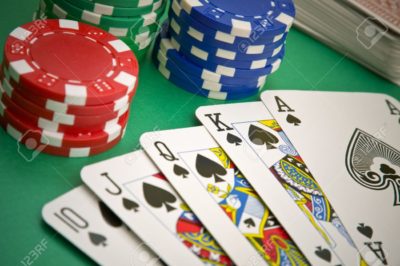
This skill will train you to think about your hand's relative strength (as opposed to absolute strength) and ensure you don’t accidentally assume you have the best hand when your opponent has you crushed.
Not an issue of course if you happen to have a royal flush.
#43 Don’t Play When Tired or Emotionally Drained
Poker is a game which requires lots of concentration and energy. If you aren’t in the correct state of mind, you won’t make optimal decisions.
Over the long run, playing when drained is clearly a losing strategy. Only play when you’re in the correct state of mind! Here is why Daniel Negreanu doesn't play poker while tired.
#44 Always Have A Plan
When calling a bet or calling a raise, you should have a plan for what you are going to do on the next street.
Are you going to call or raise? On which cards are you going to fold? What will you do if your opponent lead bets into you?
Similarly, when betting you should also know what to do when your opponent calls or raises.
By simply planning ahead like this, you are opening your mind to more possibilities and will be less likely to miss a more profitable line.
#45 Work On Your Mental Game
Your mental game is almost as important as your technical game; however, the majority of inexperienced players completely neglect developing it.
Controlling your emotions, recognizing when you are tilting and playing in the zone are all part of your mental game.
To find out more about mental game poker tips see the blog post on the mental game. Here is Jared Tendler (world-famous poker coach) in a long but useful video about the mental game:
#46 Take Your Table Image Into Account
Table image is how your opponents perceive you. If for example, your opponent sees you as aggressive, they will be more likely to call you light, because they think you are often bluffing.
Conversely, if you very rarely raise your opponents will know to fold when you do put in a big raise.
Make sure you understand how your opponents have played and use it to your advantage. See how to use table image to your advantage over at Pokerology.
#47 Stop Calling 3bets Out of Position (OOP) As Often
Playing OOP is difficult; playing OOP without the initiative in a 3bet pot is even more difficult.
Often, players believe that because they raised a hand that they should continue with it versus a raise. Continuing with a poor hand only because you have invested chips is a poor poker strategy. In fact, you should be folding the majority of your hands when facing a 3bet OOP.
If you call 3bets frequently, you will often end up just folding on the flop or turn, resulting in an even bigger loss! Tighten up vs. 3bets preflop to increase your profits!
See calling 3bets in position and out of position, for more information.
#48 Join A Study Group
Study groups are a very efficient way of increasing your knowledge base in any subject; thus they are one of the quickest ways to learn to play poker. The effectiveness comes from the fact there is a group of people with the same interests working towards the same goal.
Spend time discussing hands, helping other members with their issues and asking your questions. You can join study groups in most poker forums.
#49 Listen To Music While Playing
Music can both be relaxing, motivating or both (depending on what type of music you listen to). Some people can’t listen to music while playing; personally, I feel it's a simple poker tip that helps me get into the zone.
But make sure your headphones aren't so loud that you can't hear the dealer or other players!
Try it out and see does it help you!
#50 Learn The Important (yet simple) Poker Math
Math is a big part of poker and should play a role in many of the decisions you make at the poker table.
Poker math isn’t particularly complicated so invest some time, and your bankroll will thank you for it!
Also, check out our list of the best poker books for recommended reading on poker math.
#51 Beware Of The Flush
Flushes are one of the most attractive hands to make in poker. Nothing looks better than when all five cards colour matches (well maybe if they were in a row too!).
This bias leads to a lot of newer players overpaying for flush draws and as a result when the 3rd flush card hits they are quite likely to have made a flush.
Make sure you don’t pay them off when they suddenly start shovelling chips into the pot!
See SplitSuits thoughts on how to play overpairs when flush draws complete here.
There are over 50 of the best Texas Holdem Tips & strategies. Any other quick poker tips for beginners?
If you know somebody who might find these useful, please share below! Thank you.

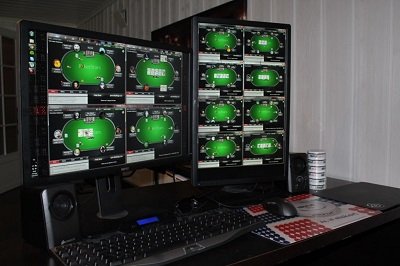
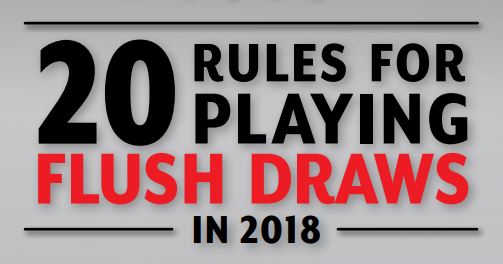
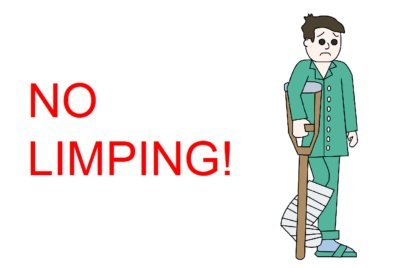


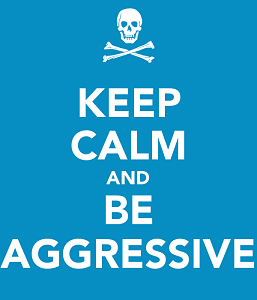
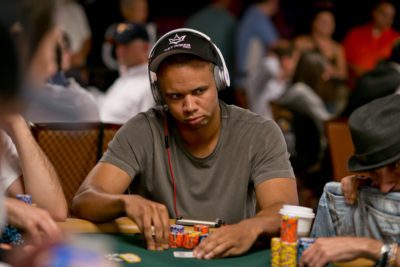
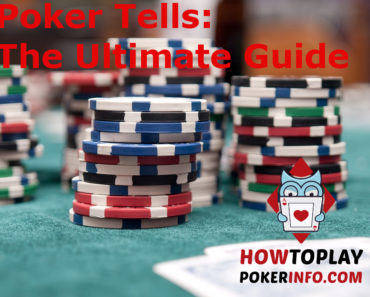
Wow because this is great work! Congrats and keep it up
cheer man, glad you like it!
I went to tons of links before this, glad I found this.
I simply want to say I am just all new to blogging and site-building and really loved this web site. I’m going to bookmark your blog post . You really have outstanding stories. Thanks a lot for revealing your web-site.
Thank you for the comment
Your post is a nice summary of poker tips.
Thanks
Grade A stuff and well written.